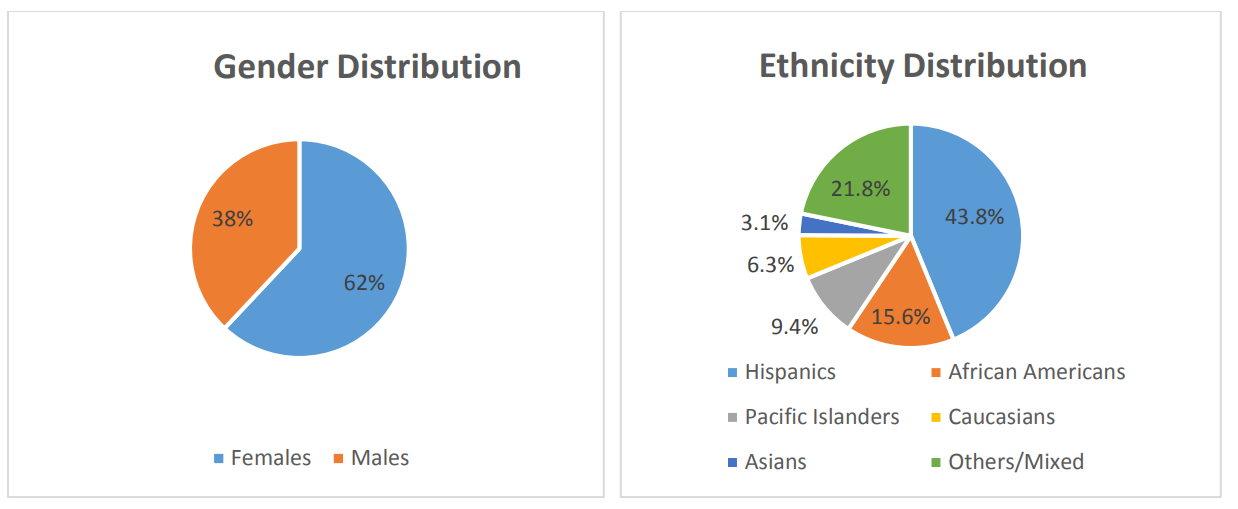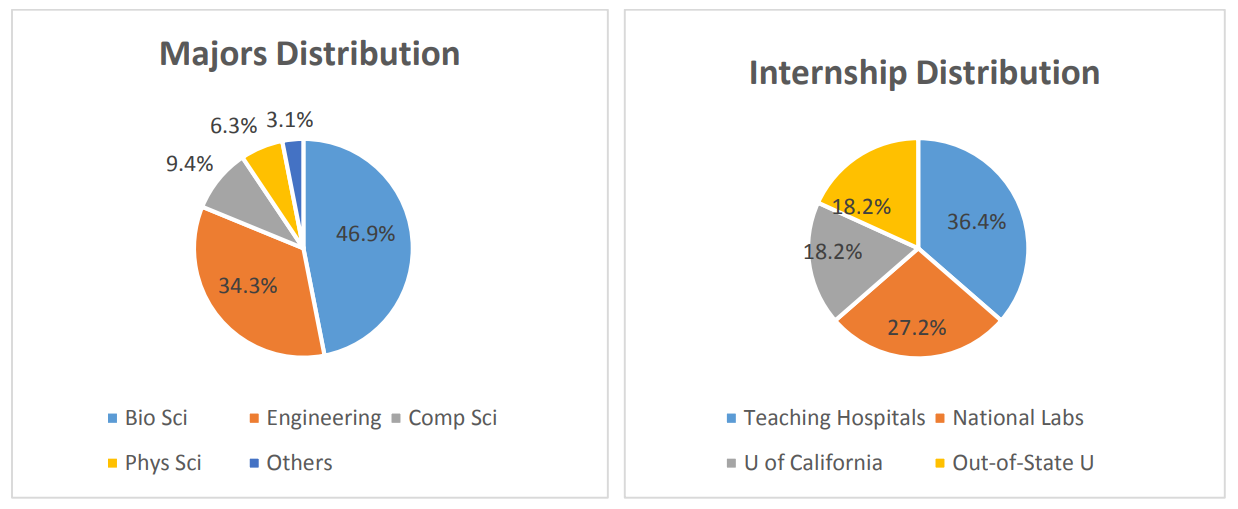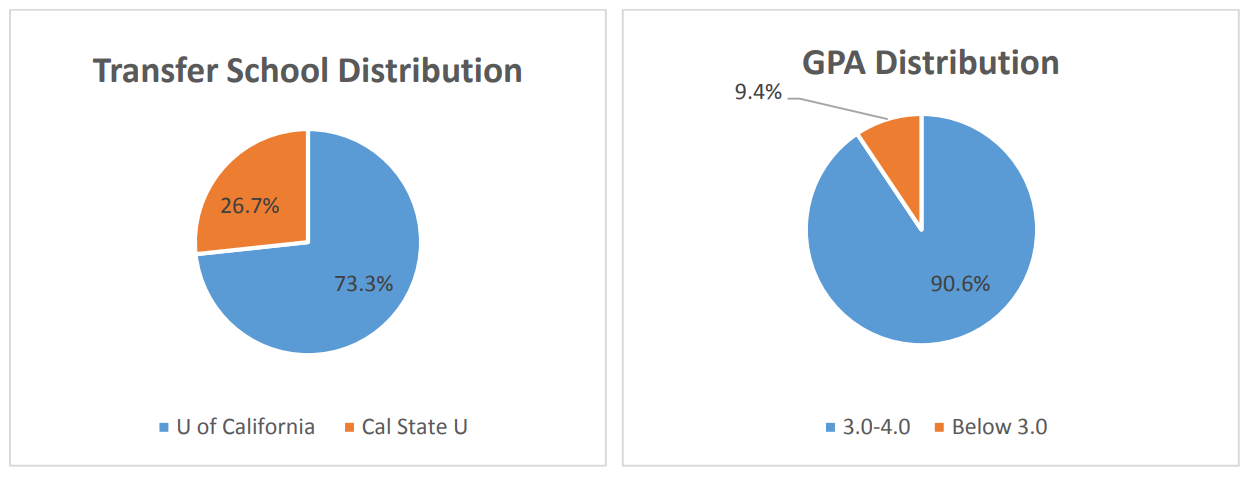The Center for Science Excellence (CSE) is a Presidential Award-winning program that offers financial and academic support to students majoring in science, technology, engineering or mathematics (STEM) fields.
That support comes in the form of mentoring, tutoring, seminars, academic trips, scholarships, summer research internships and many other related academic activities.
- Academic enrichment
- Scholarships
- Internship opportunities
- Seminar presentations by STEM professionals
- Workshops and tutoring
- Academic and career mentoring by STEM professionals
- Academic trips
- Help transferring to a university
- Community service opportunities
- Alternative study environments with like-minded, STEM-focused students
- Scholarships (up to $3,400 / year,) are awarded to full-time STEM majors who maintain good standing in the program and are PELL Grant-eligible.
- In order to fully benefit from all services offered by the Center for Science Excellence, you must meet the following criteria:
- Be a full-time student at Contra Costa College
- Be a STEM major, and planning to graduate from and / or transfer to a STEM program at a four-year institution.
- Be eligible for federal financial aid or California College Promise Grant fee waiver
- Maintain a 3.0 GPA (though students with a lower GPA may apply)
- Be a US citizen/permanent resident
- Participate in all activities sponsored by the Center for Science Excellence (workshops, seminars, tutoring, and weekly mentor meetings)
- Qualifying students can join by downloading an application packet or picking one up at the CSE office, then submitting it along with the following documents:
- Proof of Financial Aid
- Educational Plan Signed by a Counselor
- Unofficial Transcript
- Letter of Recommendation from a STEM Professor
- Personal Statement
- Current Semester Schedule
The Center for Science Excellence has received grants of $7.5 million from various funding agencies, including the Army Research Office, National Science Foundation (NSF), Department of Education (DoEd), United States Department of Agriculture and University of California Office of President MESA program (UCOP-MESA).
The funding pays for a student assistant, scholarships, summer research internship stipends, supplies and materials, and academic related activities.
National Science Foundation Scholarships in STEM (NSF S-STEM)
Current Funding
Award Number: 1564587 (2016-2021)
Project Title: Scholarships For Excellence, Achievement, and Professional Competence in Science, Math, and Engineering
Duration: 5 year
The goal of the Contra Costa College S-STEM Scholar project is to graduate or transfer at least 80% of scholars to four-year institutions within three years. The project provides two-year scholarships for four cohorts of 30 low-income, academically talented and financially disadvantaged students in biological sciences, computer sciences, engineering, mathematics and physical sciences.
The project will build on the success of its previous Computer Sciences, Engineering and Mathematics Scholarships project by integrating scholars into the Center for Science Excellence academic support infrastructure. S-STEM scholars will benefit from an array of services that includes faculty mentoring, academic support services, cohort building, and professional development activities. The results of the project support will decrease the time-to-degree within two to three years, and increase the persistence, graduation and transfer rates of low-income and underrepresented students in STEM disciplines.
Year I Results (2016-2017)
A total of twenty-nine students participated actively in the program, 41% of the students were females. The ethnicity distribution included 52% Hispanics, 14% Pacific Islanders, 10% African Americans, 10% Asians, 10% Caucasians, 3% others, and 4% not reported. A large percentage of the students major in engineering (48.3%) while 34.5% major in biological science, 13.8% in physical science, and 3.4% in computer science. The comprehensive academic support activities helped boost student performance: 77.5% of the students maintained grade point averages between 3.0 and 4.0 while the rest were below 3.0.
CSE program encouraged students to apply for summer internships. In the summer 2017, thirteen students participated in summer internship programs: 53.8% in national labs (Lawrence Berkeley National Lab and United States Department of Agriculture, Albany, CA), 38.5 % in teaching hospital (Children Hospital Oakland Research Institute and UC Davis Medical Center), and 7.7% in UC Berkeley.
CSE program organized orientation, summer research presentation, alumni panel, seminars by visiting professionals from national labs, teaching hospitals, universities, and industries. In 2016-2017 academic year, the program hosted distinguished guests from the Lawrence Berkeley National Lab (Dr. William Drew Collins, Dr. Romy Chakraborty, and Robin Lopez), from UC San Francisco (Dr. Thomas Lang and Dr. Alan Wu), County of Alameda District Attorney Mark Jackson, and Mr. Eddie Morris and Mr. Jude Onwuemeka who are both engineers and alumni of the CSE program.
Out of the 29 student participants, twelve students (41.4%) transferred to universities to earn their baccalaureate degrees and the rest continued with the program. Of the twelve transfer students, eight students (66.7%) transferred to Universities of California (Berkeley, Davis, Los Angeles, and San Diego) and four transferred to California State Universities (San Jose and East Bay).
Program effectiveness was evaluated by an evaluation team from the Lawrence Hall of Science evaluation team, headed by Ms. Valeria Romero. She conducted online surveys, Focus Group interviews, and line of sight evaluation in various activities.
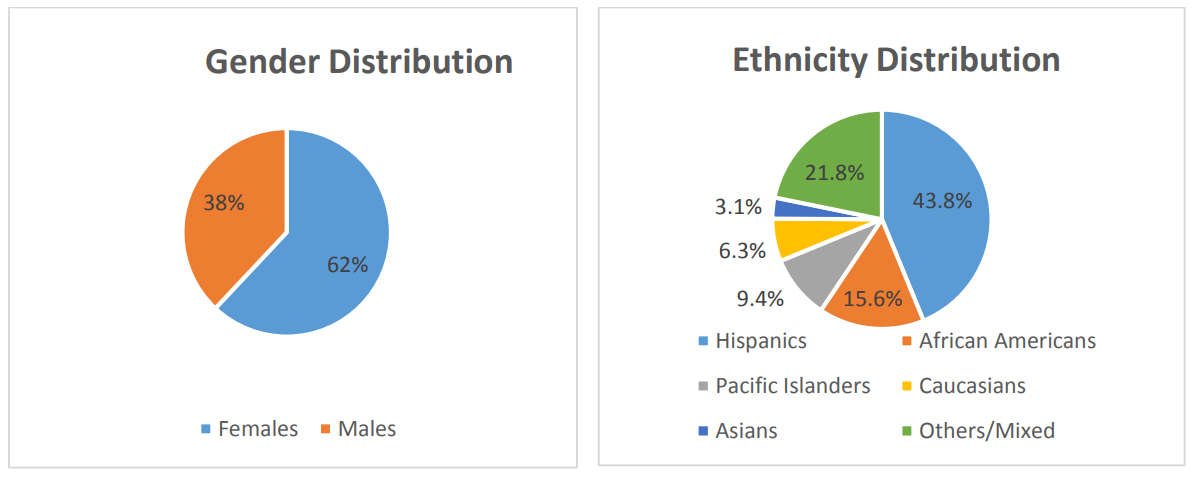
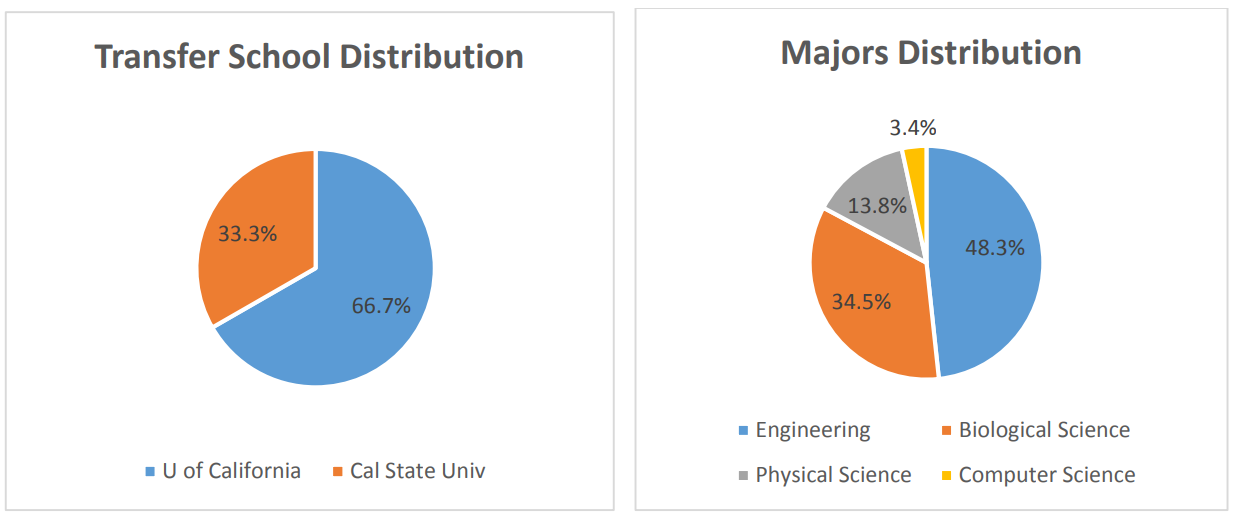
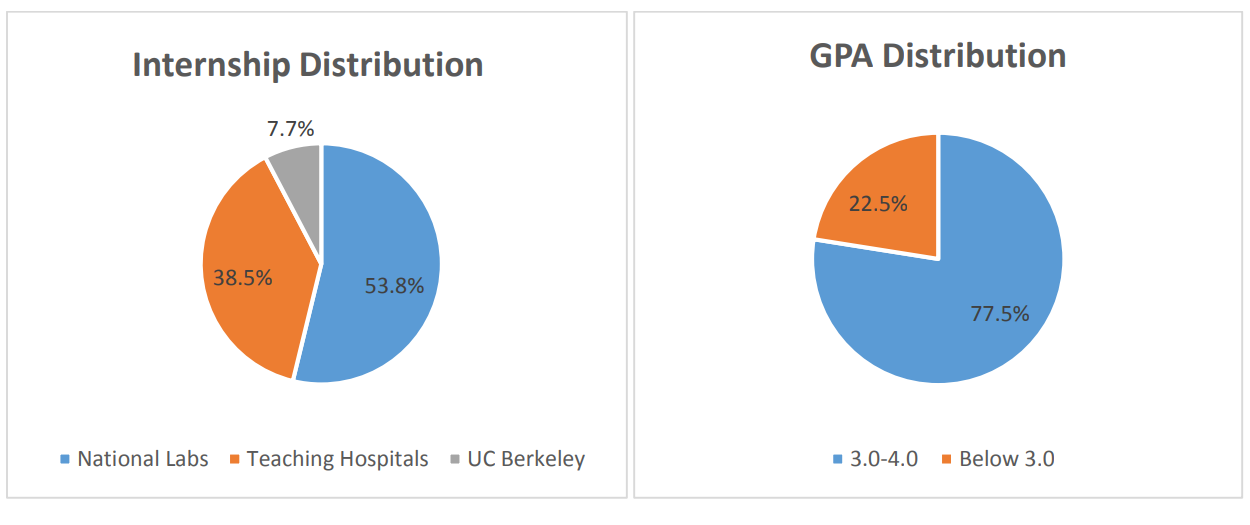
Read the full 2016-2017 evaluation.
Year II Results (2017-2018)
Thirty-two students participated in the program in 2017-2018 academic year. Unlike in the first year, 62% of the student population was female. Ethnicity distribution includes 43.8% Hispanic, 15.6% African Americans, 9.4% Pacific Islanders, 6.3% Caucasians, 3.1% Asians, 21.8% others or mixed.
Unlike in the first year, more students major in biological science (46.9%) while 34.3% majored in engineering, 9.4% in computer science, 6.3% in physical science, and 3.1% in other. The percentage of students maintaining GPA between 3.0 – 4.0 increased to 90.6% while the rest maintained GPAs between 2.0-3.0.
Eleven students were selected to participate in the summer internship programs: 36.4% in Children Hospital Oakland Research Institute, 27.2% in U.S. Department of Agriculture, Albany, CA., 18.2% in Universities of California (Berkeley and Los Angeles), and 18.2% out-of-state universities (Georgia Tech and Rensselaer Polytechnic Institute, NY).
Besides the orientation and summer research internship panel, there were nine STEM seminars and two workshops on UC applications and programs. The seminars covered a wide range of topics, from the health effect of climate change to software and hardware engineering. The guest speakers featured guests from the Universities of California Berkeley and Davis, Lawrence Berkeley National Lab, Harvard University, and industries. Three speakers were especially important to our student audience because they were CSE alumni who have earned excellent positions in their respective fields: Mr. Soheil Bigdeli (Qualcomm), Ms. Gloria Guzman (UTC Aerospace System), and Dr. Edwin Reyes (Harvard postdoctoral fellow).
The second fiscal year also had higher percentage of students transferring to four-year institutions: fifteen students (46.9%) transferred to universities for their bachelor degree programs and the rest continued to the 2018-2019 academic year. Of the fifteen transferred students, 73.3% to Universities of California (Berkeley, Davis, Santa Barbara, and Santa Cruz) while the rest chose California State Universities (CalPoly and San Jose State).
Program effectiveness was evaluated by an evaluated by an evaluation team from the Lawrence Hall of Science evaluation team, headed by Ms. Valeria Romero. She conducted online surveys, Focus Group interviews, and line of sight evaluation in various activities.
Student Projects
CSE students participated in a host of projects at CCC in the 2017-2018 academic year. These projects included building model rockets with Arduino sensors for logging and recording speed, altitude, and acceleration. Another group of students designed, constructed, and raced a solar-powered boat for the 2018 Sacramento Municipal Utility District’s annual California Solar Regatta, ultimately winning the Judge’s Choice Award in the college competition. Another pair of students worked on design projects involving a design for modular roller skates and a metal foundry, ultimately creating proof-of principle models. Each of the above groups presented their projects at the second annual Contra Costa College Student Research Symposium.
